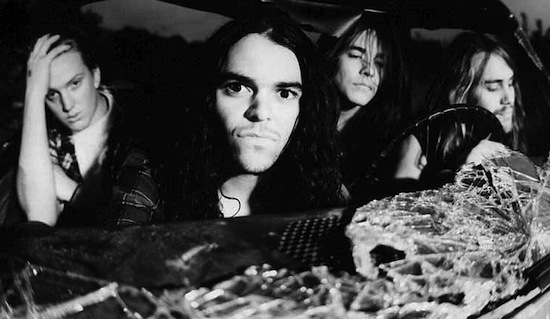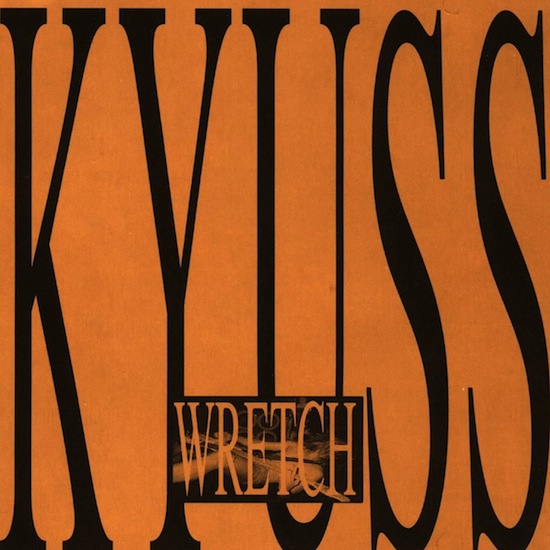The year is 1991. You’re looking for a party in the middle of nowhere. The desert stretches out in all directions until it seems as vast as the universe. The wind licks your hair as your fingers lie easy on the wheel. Scrunched up in your left fist is a battered flyer with some scribbled directions that suggest you should have reached your destination half a mile back. Above you the canopy of unobscured stars continue their march against the afterglow of dusk. Underneath you the engine thrums like a big cat’s purr, powering tar-black wheels that leave dust-devils spinning in their wake.
You’re close to giving up.
Then you hear something. At first you assume it’s no more than undulation of the engine, the throaty bawl of a hungry V8. But soon you realise that the sound isn’t just coming from under the hood. It’s coming from everywhere. It might be described as music, if music could call gods and giants to draw up their battle lines and prepare for the coming Ragnarok. A deep bass thrum echoes off the distant mountains while a thunderous guitar crashes through the night sky. And there’s a beat; a beat that seems to rise from the very road beneath you to seize every fibre of your being and yank them back like chariot reins. It’s more than primal, it’s elemental – as though you’ve managed to tap into what the land itself was listening to all along.
There are few bands who can claim their art to be a reflection of their reality to the degree that Kyuss could. Over the course of a career that spanned only a few years, the four amigos managed to take the principals of freedom and individual expressionism that defined their isolated Palm Desert rock scene and run further with them than anyone could have imagined. In doing so they invented a new, behemothic style of music that was as huge and unknowable as the wastelands they performed in. There are plenty of other acts that could be said to have invented that expansive, jam-fuelled form of punk that we now know as desert rock: Dead River proved to their bored rural peers that you didn’t need to be from LA to start a punk band; Mario Lalli’s Yawning Man started feeding the ceaseless inspiration offered by their vast, empty surroundings back into their music, while Across The River added technical prowess and big-bottomed heft to allow more metal influences to enter the scene.
But, even though the desert rock scene was throbbing with creation throughout much of the late 80s, its participating bands were incredibly sluggish when it came taking anything beyond the late night generator parties Mario Lalli would throw at the nearby abandoned nudist colony. There was minimal video footage, very few paid gigs and next to no recorded output before 1991.
Wretch changed all that. Though it will never be revered to the degree that subsequent albums Blues For The Red Sun or Welcome To Sky Valley are, it marked the first occasion that the outside world was given a glimpse of the titanic sound that previously been the preserve of a handful of stoned, bored teenagers.
I am one of the guilty number who, when recommending Kyuss to any uninitiated friend, will usually resort to describing them as ‘Josh Homme’s old band’. The redheaded giant might cast an unavoidable shadow over the near entirety of modern rock, but Kyuss was always far more than a pre-Queens Of The Stone Age sandbox for junior Josh to play in. From its inception as ‘Sons Of Kyuss’, the band had always been built around the emerging, distinct musical identities of its guitarist and drummer. Enter Brant Bjork, one of the most underrated and original sticksmen ever to grace a drumstool. Sure there was also the rabid growl of original bassist Nick Oliveri, but he was too busy getting his kit off at any given opportunity to contribute anything more than one composition on Blues, the unhinged ‘Mondo Generator’. Likewise, singer John Garcia might have cut a striking figure on stage, but he may go down as one of the least creatively involved frontmen in the history of rock & roll.
From the moment ‘Hwy 74’s open hi-hat smashes into the ring to fend off Josh’s feedback squall, the engine that would go on to power every track of Kyuss still to come is spread out on the workbench for all to see. This is the sound of two friends facing off, one with an amp stack, one with a drum kit, and seeing who can push infinity back further.
The band started out jamming out the songs on Wretch together in Brant’s garage, which, given that finding a place to practise in Palm Springs was a challenge in its self, gave Brant huge authority within the band. He also came up with the name, took on the role of band spokesperson and wrote a good number of their greatest songs (‘Gardenia’, ‘Green Machine’ and the peerless ’50 Million Year Trip (Downside Up)’ to name just a few). While Josh’s writing style built extensively on the foundations laid by Masters Of Reality (whose frontman Chris Goss would go on to produce all their post-Wretch output), Brant brought a true originality to the group. When he quit after their 1994 Australian tour in support of Metallica citing his fear that the band had strayed too far from its Palm Desert roots, the magic that powered the group’s thunderous style would proceed to dry up overnight.

People always seem to emphasise the use of rumbling toms when describing Brant’s powerful backbeat. But when you listen to the band at full flow on the likes of ‘Son Of A Bitch’ (one of the few songs that could have been lifted from either Blues or Sky Valley) there’s barely any floor tom use at all, especially when compared to the work of his replacement Alfredo Hernández on the likes of ‘Gloria Lewis’ and ‘Hurricane’ from Kyuss’s patchy final album …And The Circus Leaves Town. Though Brant could thump his tubs with the best of them when required, his real contribution to the art of percussion was his cymbal work. Couple the scarcity of John Garcia’s vocals to all the detuning going on with the guitar and bass and Brant’s crash cymbal actually becomes the primary treble instrument for large stretches of Kyuss’ music.
The best thing about listening back to Wretch is hearing Brant invent his signature sound between takes, glancing only occasionally in his wing mirror to watch the band’s early Black Flag pretensions recede into the distance. Compare the material that had featured on their inaugural Sons Of Kyuss demo to new tracks such as ‘The Law’ and ‘I’m Not’ and you can hear his style evolving and feeling out towards its logical conclusion. The premise for Brant’s soon-to-be perfected technique is simple: build a wash of cymbal sound, vary it up enough dynamically to cast the illusion of a never-ending crescendo, but keep it stable enough to function as a sonic highway that the accompanying tussling bass/guitar juggernaut can safely helter down the middle of. This one crucial component allowed Kyuss to give the impression that their songs would keep getting “bigger and bigger and bigger” (as Brant Bjork devotee and one-man Kyuss PR team Dave Grohl puts it on the essential desert rock documentary Desert Age) without ever actually having to change much at all.
Wretch will never be considered a masterpiece by either Kyuss or their fans. After all, back in 1991 none of the band had ever even been in a studio. They were used to playing their music under the open sky, surrounded by the same limitless desert that inspired them to reach ever further and delve ever deeper in their pursuit of a truly elemental sound. The fact that much of their debut record sounds like a band midway through the process of shedding its skin makes the brief glimpses of the band that they would become all the more jawdropping. Wretch is far more than just a curio for diehard Kyuss fans. It’s an immortal documentation of self-discovery, a testament to what can happen when the infinite parameters of true freedom are pushed to the limit.
At the heart of this process lies Brant Bjork, the band’s true ringleader and possibly the greatest backseat innovator since Ginger Baker. It was through Brant that Kyuss was born, burned fiercely and died young, returning to the same dust from which it had been formed. The man kept true to something bigger than himself and has been rewarded with a legacy that is unimpeachable.


